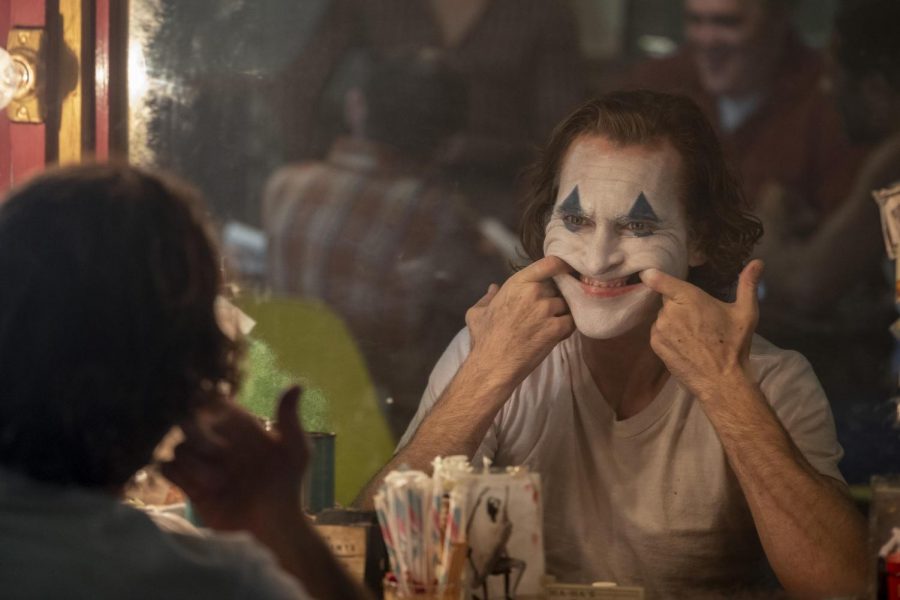“Joker” puts society in the hot seat
Tribune News Service subscription from Warner Bros.
Joaquin Phoenix stars in the latest iteration of the Joker.
October 18, 2019
(Warning: may contain strong content)
“Joker” has proved to be a highly controversial movie this fall with audiences, but it’s also giving viewers a wider perspective on the issue of mental health and why it’s still not being talked about as widely.
Director, Todd Phillips, focus was all on the main character, Arthur Fleck, played by Joaquin Phoenix. Throughout the movie, we see Arthur being beaten down by himself, his job, and the world. It raises the question as to why it’s happening to him. This movie is not meant to necessarily victimize him, but to keep people aware that this is how the world views and treats mentally ill people.
Now, that doesn’t excuse the fact that Joker killed people, but Philips does a wonderful job of creating this sense of “Why is this happening and why isn’t anyone doing anything to stop it?” A pivotal scene that highlights the injustices against Arthur and people on the lower half of the ladder in society, is the talk show scene between Arthur and Murray Franklin, played by actor Robert De Niro.
“What do you get when you cross a mentally ill loner with a society that abandons him and treats him like trash? You get what you f**kin’ deserve,” actor Joaquin Phoenix says in the pivotal scene.
That scene was such a powerful moment because it’s the movie telling the audience why he’s finally turned his back on society. He’s aware that society has always had their back turned on him, but he’s finally coming to that conclusion. Arthur wants society to be held accountable for all the wrongs they’ve done to him, his mother, and people like him.
However, this scene also shows a bright contrast to this idea of accountability. Murray Franklin and just about everyone in the audience was horrified and disgusted by what Arthur had done. Naturally, anyone would be upon hearing that someone murdered 3 young men and felt no remorse, but they don’t understand what Arthur has been through to have pushed him to that point. They don’t know that he saw those 3 men harass a woman or because Arthur merely began to laugh, they decided to assault him. All society sees is a monster and they don’t want to hear the whole story, they hear the bad and make their own assumptions.
This scene was only a small sliver into how society reacts on news of the mentally ill. It’s a lot easier to turn the other way or put it off as people just being “crazy.” President Trump has proposed slashing budgets for mental health care throughout his presidency. The President of the United States, an example for many, models the behavior that mental health is something to be put on the back burner. He influences many, being the huge figure that he is, but he’s only one example of how the movie represents reality.
“The worst part of having a mental illness is people expect you to behave as if you don’t,”says a line from Arthur’s journal in the movie.
Throughout the movie, the audience sympathized with him and rooted for him to find his happy, until they couldn’t anymore. His pleas were falling on deaf ears and he was desperate to be heard, so he went to extreme measures to get the attention he needed.
Arthur Fleck fully transformed into the Joker to be some type of hero for the voiceless. Unfortunately, he doesn’t go about it in the most conventional way. Nonetheless, this movie proves to be a plea for change in society, so let this be a wake-up call.








